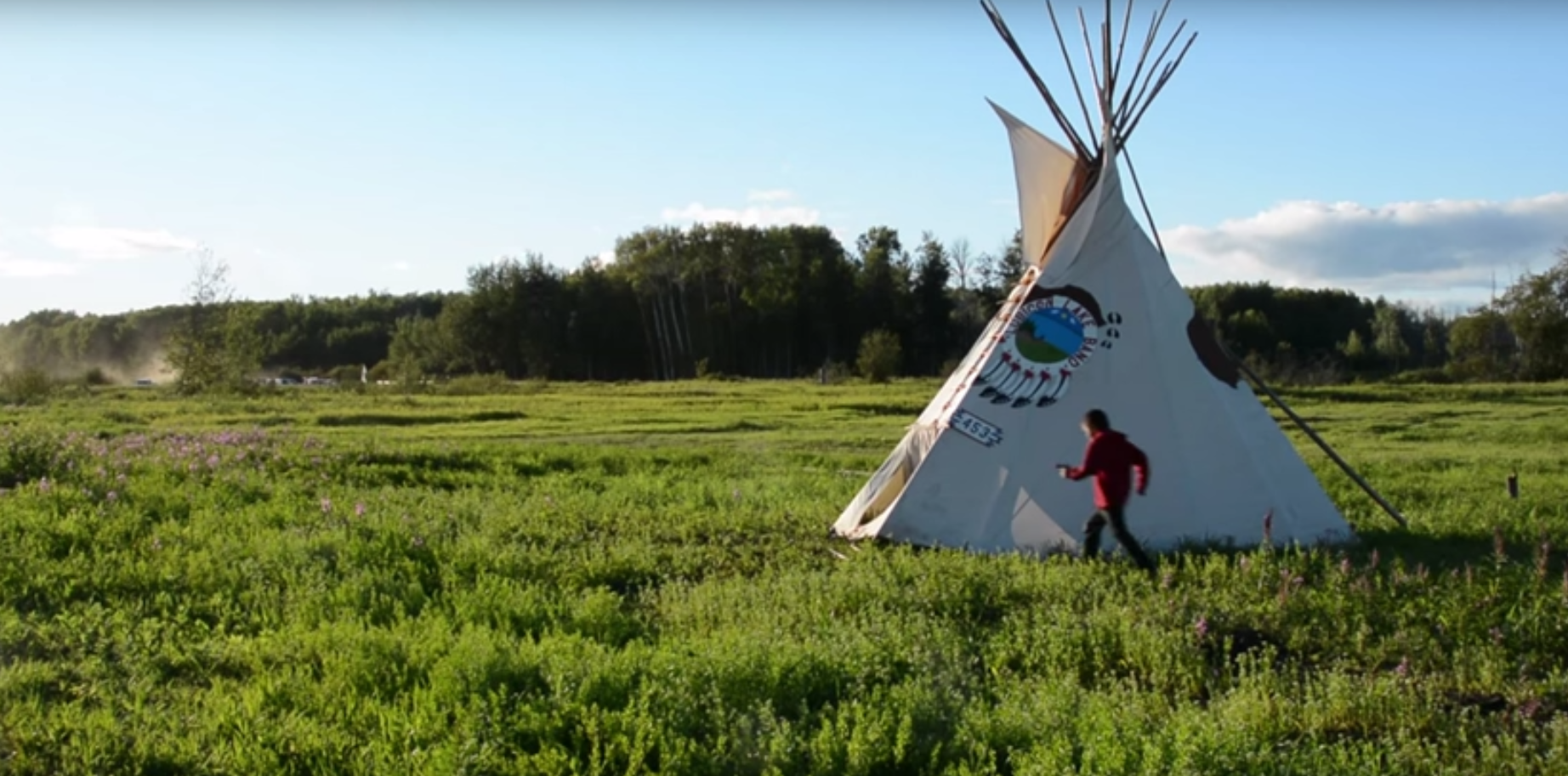Like this article? rabble is reader-supported journalism. Chip in to keep stories like these coming.
On Wednesday May 18, Lubicon Lake Nation Chief Bernard Ominayak met with Alberta’s Indigenous Relations Minister, Richard Feehan, following the Nation’s recent human rights complaints.
In a Skype interview with rabble, Cynthia Tomlinson, recently elected Councillor of the Lubicon Lake Nation, said that the meeting with Feehan involved discussion of Lubicon’s ongoing land rights disputes.
Earlier this month, the Nation also resubmitted a human rights complaint to the 89th Session of the United Nations Committee on the Elimination of Racial Discrimination (CERD).
“We’ve been hearing talks of the Liberal government saying that they’re going to have the UN have a bigger influence in Canada, and we’re hoping that’s really the case and not just an empty statement,” Tomlinson said.
Lubicon’s ongoing fight for their land
The Lubicon Lake Nation never signed a treaty with the Canadian government. “We still hold a title to our land, because we never signed a treaty,” Tomlinson told rabble. But when oil and other natural resources were discovered on Lubicon land in the early 1950s, the Albertan government built an all-weather road into Lubicon territory, without Lubicon consent.
Lubicon members filed a caveat, notifying the government that a land claim was contested. Alberta passed legislation to retroactively dismiss the case.
Oil extraction and resource development on Lubicon land exploded in the late 1970s and early 1980s upon completion of the all-weather road. The Lubicon have not received a penny of oil and gas royalties.
Throughout the 1980s, the Lubicon organized various actions, most notably a boycott of the 1988 Winter Olympics in Calgary. As a result of the boycott, over 30 museums refused to lend artifacts to the the Olympics’ Shell Oil-sponsored “Indian Art” exhibit.
In 1988, the Lubicon withdrew their ongoing lawsuits and set up blockades around their land. Days later, Alberta Premier Don Getty sent the RCMP to tear down the blockades. Shortly afterwards, Chief Ominayak and Getty signed the Grimshaw Accords, which set out the 243-square kilometre reserve for the Lubicon. The Lubicon still needed to negotiate a similar deal with the federal government.
Negotiations with the federal government broke down in 1989 when the Minister of Indian Affairs organized a rival band that incorporated Indigenous peoples from communities outside of the Lubicon in Alberta. The government negotiated a land deal with the newly created band, the Woodland Cree, which undermined the Lubicon’s land claims.
Since 1990, the Lubicon have fought for recognition of their land claim in courts. In June 2013, the Lubicon filed a $700 million lawsuit against Alberta and Canada. According to the Lubicon Lake Nation’s most recent press release, neither the province nor Canada has filed a statement of defence.
UN human rights complaints
The UN, to this day, charges Canada with human rights violations with regard to the Lubicon Lake Nation.
In 1990, the UN issued charges against Canada in violation of Article 27, stating that “recent developments threaten the way of life and culture” of the Lubicon.
“The first complaint was made in 1990, and the UN urged Canada to deal with us in a way that was honest and respectful,” Tomlinson told rabble.
At their meeting with Feehan, Ominayak and Tomlinson discussed the recent UN Human Rights complaint that was re-submitted earlier this month.
“We’re hoping that [our complaint] is enough for [the government] to say ‘okay we should deal with this right’. We want someone to come to the community and deal with the paperwork. We’re hoping that the end result is a bit different than in 1990, meaning that we’ll actually get this resolved.”
As for the outcomes of their meeting with Feehan, “I’m not really sure what he’s going to do, but the ball is in his court now,” Tomlinson asserted.
Sophia Reuss is a Montreal-based writer, editor, and is a recent graduate of McGill University. She’s interested in how online media and journalism facilitate public accessibility and conversation. Sophia also writes and edits for the Alternatives International Journal. She is rabble’s current news intern.
Photo: YouTube



